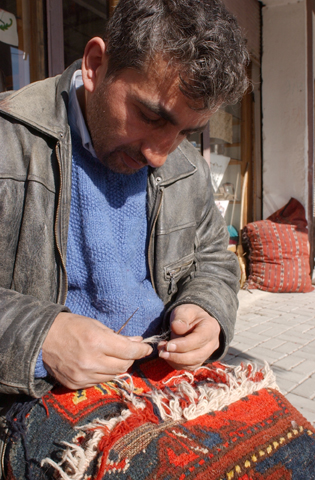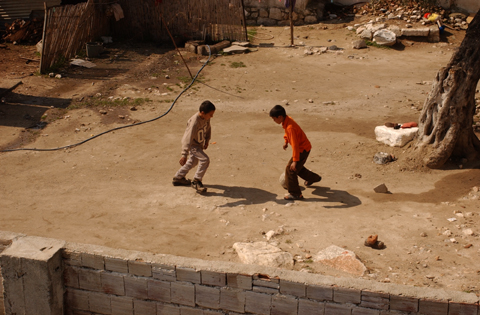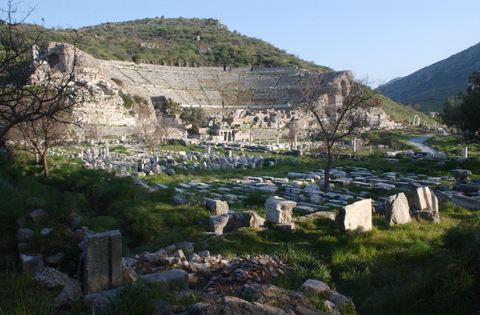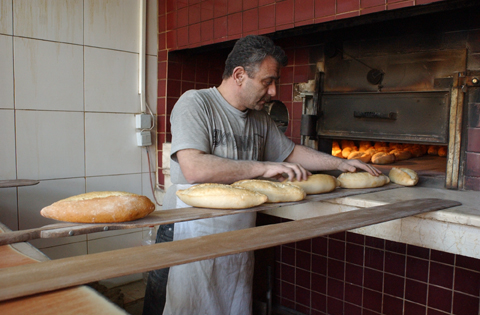 Rug Weaver in Istanbul |
I am truly enjoying my time here in Turkey. As with any cross-cultural experience there are a number of adjustments that must be made to have a successful integration into a foreign culture. This number is, in fact, overwhelming, and so I have decided to let the particulars come as they may, rather than struggling to gain the quickest understanding of Turkey. More clearly, I have become comfortable with the concept of myself as an American in Turkey rather than viewing myself as an outsider looking in.
 Turkish children play soccer where ever they can |
If I were to stereotype the people of Turkey, I would have to say that they are among the nicest, most generous, helpful, and caring people I have ever met. I have not met one Turk lacking hospitality. Despite what CNN might have people believe, no Turkish person is willing to judge a foreigner by the actions of their government, and in my case this is a very good thing since Turkey overwhelmingly opposes the war in Iraq.
 An ancient Turkish theater |
There are no other countries looking out for Turkey’s best interests at the moment, and many Turks feel marginalized by the rest of the world’s agenda. This is not the way most Turks would have their country viewed. Turkey is, after all, the site of three of the greatest empires the world has ever seen, the location of the world’s first monetary economy, and one of the largest, most powerful, and influential countries in the Middle East and Europe.
Thus, most Turks find themselves in a position where they feel their country may want to compromise, but should not have to do so.
 Turks are known for their love of fresh foods |
Turkey has been a country under the influence of two continents for centuries, and it is because of this that Turkey’s people have been able to develop a culture that is as similar to Indiana as it is to India.
 Turkey is filled with ancient sites |